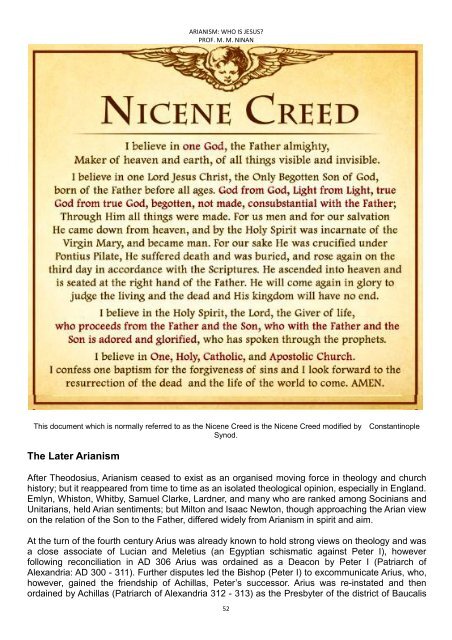Arius
Create successful ePaper yourself
Turn your PDF publications into a flip-book with our unique Google optimized e-Paper software.
ARIANISM: WHO IS JESUS?<br />
PROF. M. M. NINAN<br />
This document which is normally referred to as the Nicene Creed is the Nicene Creed modified by<br />
Synod.<br />
Constantinople<br />
The Later Arianism<br />
After Theodosius, Arianism ceased to exist as an organised moving force in theology and church<br />
history; but it reappeared from time to time as an isolated theological opinion, especially in England.<br />
Emlyn, Whiston, Whitby, Samuel Clarke, Lardner, and many who are ranked among Socinians and<br />
Unitarians, held Arian sentiments; but Milton and Isaac Newton, though approaching the Arian view<br />
on the relation of the Son to the Father, differed widely from Arianism in spirit and aim.<br />
At the turn of the fourth century <strong>Arius</strong> was already known to hold strong views on theology and was<br />
a close associate of Lucian and Meletius (an Egyptian schismatic against Peter I), however<br />
following reconciliation in AD 306 <strong>Arius</strong> was ordained as a Deacon by Peter I (Patriarch of<br />
Alexandria: AD 300 - 311). Further disputes led the Bishop (Peter I) to excommunicate <strong>Arius</strong>, who,<br />
however, gained the friendship of Achillas, Peter’s successor. <strong>Arius</strong> was re-instated and then<br />
ordained by Achillas (Patriarch of Alexandria 312 - 313) as the Presbyter of the district of Baucalis<br />
52

















